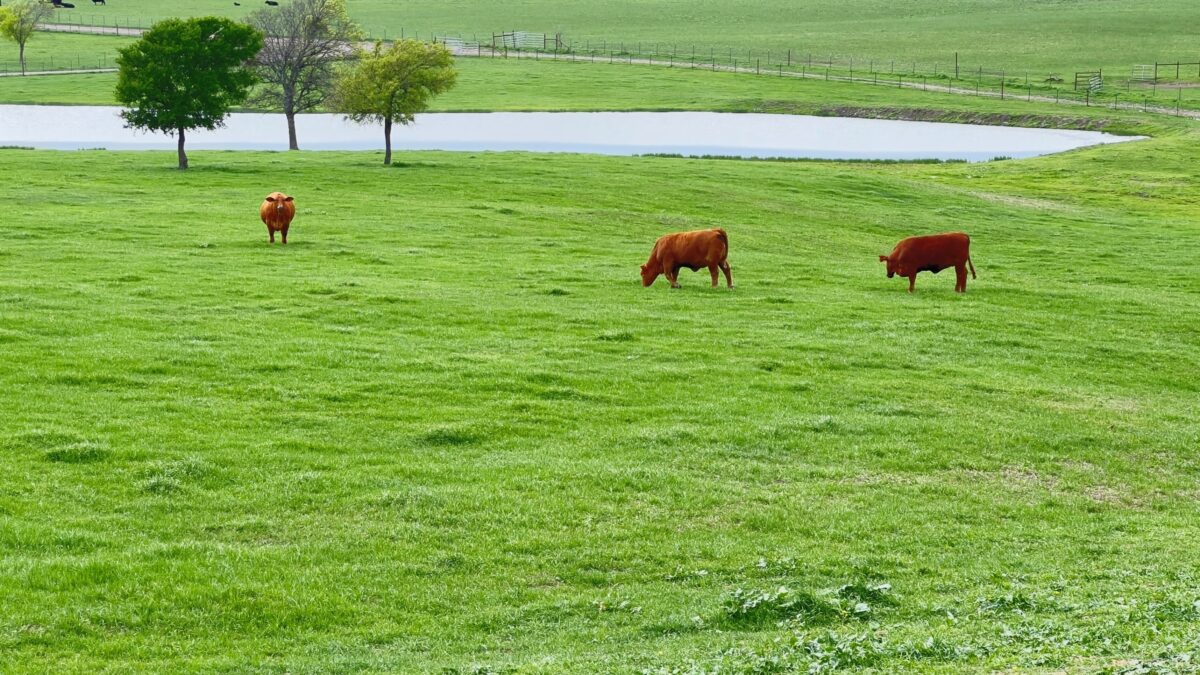Video: It’s Time to End Unfair Treatment
TOPICS
SwampbusterErin Anthony
Director, Communications

photo credit: AFBF photo, Mike Tomko
Erin Anthony
Director, Communications
This Michigan family spent 10 years and thousands of dollars fighting the USDA’s Natural Resources Conservation Service to farm their own land. It’s time to fix a decades old problem that impacts farmers and ranchers livelihoods.
Video transcript
Brad Smith:
This is what we have to do to earn a living and to feed our families.
We've been farming here on this land for seven generations now.
We're here at my mom and dad's house, and just out the window, there's the field that was targeted by NRCS as a wetland back in 2008.
They sent a letter with a little red dot on the map. And Dad wrote back and said, "What is this red dot? This is not a wetland. In fact, you tiled this for us. You helped him cost share back in 1964."
That initiated a series of administrative reviews. It evolved from a preliminary technical determination to a final technical determination. Then that was appealed administratively and then that administrative appeal was denied.
Dad went to mediation twice, and the mediation, in our opinion, was a complete waste of time. I attended the second one because eventually, he hired me because he needed a lawyer to navigate all of these rules. The rules for this are mind-numbingly complex. I mean, I'm a trained attorney and I spent many, many hours figuring out the rules. So, if he didn't have a lawyer, I don't see how a farmer without a trained lawyer can do this very effectively.
It went from the administrative level then we ended up in federal court and in federal court we were in Grand Rapids and unfortunately the court ruled against dad.
We went into mediation and again tried to settle it. We thought we had it settled and then they came back and they said, "Okay, we'll settle it, but you have to know that we found all these other spots on your farm that we also now suspect are converted wetlands." And it's just like, "Oh my word. We thought we're making progress, and then it ends up going backwards."
The sixth circuit issued its opinion and it was so gratifying. The opinion that came out was so favorable. They really chastised the agency and said it had acted arbitrary and capriciously.
It went back down to district court. We thought we had won, and then the NRCS basically said, "Okay, well, we get a do over." And so the whole thing began again.
From the beginning to end, they put the red dot on the map in 2008 and I think we ultimately settled summer of 2018.
Ultimately, you look at this little tiny spot. It's a little depression within the field that was tiled and the tile undisputed worked for many, many, many years. It failed, it became wet, and this happens every day in Michigan and I'm sure all over the country, where you have a situation and it's our livelihood.
Nick Smith:
I quit farming, turned the farm over to Brad in 2012, sort of in the middle of it. Just for the sake of being able to sleep nights.
If a farmer has to go the extra length of hiring an attorney that's capable of doing what Brad did, if it wasn't for the pro bono of Brad doing it gratuitously, because he was part of the family and part of the farm, it's just hard for most farmers. And as I looked for advice from other farmers, their advice was, "Give up."
Brad Smith:
Thank God I had another source of income, because I'm also a lawyer. If I were operating the farm, just the farm, after 2013 when prices really collapsed, the farm was not making any money. We were losing money. It was tough.
Top Issues
VIEW ALL